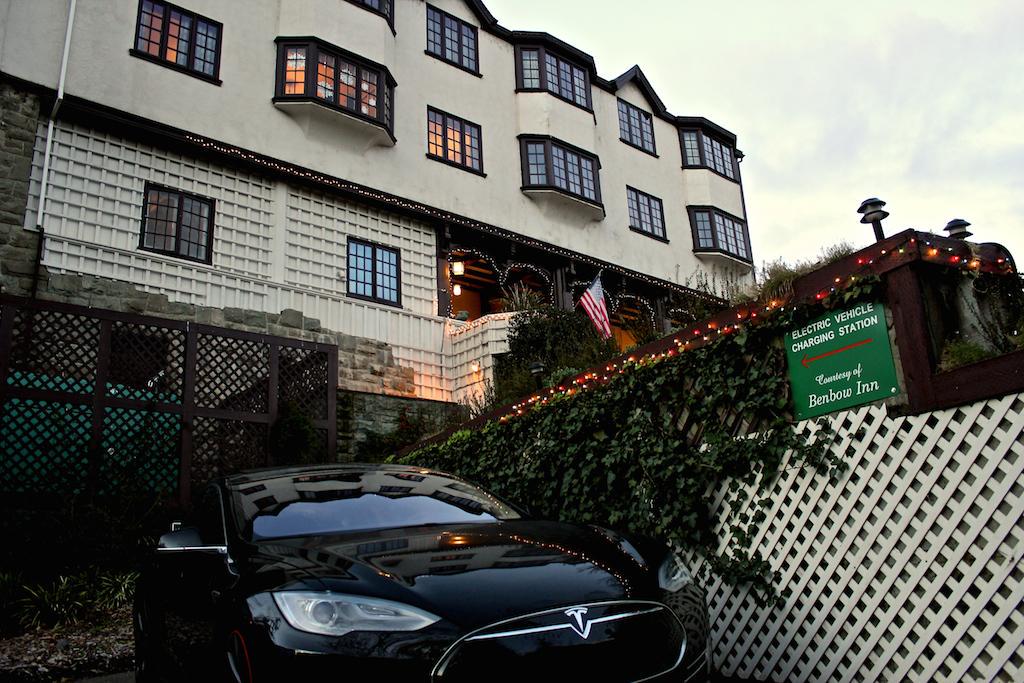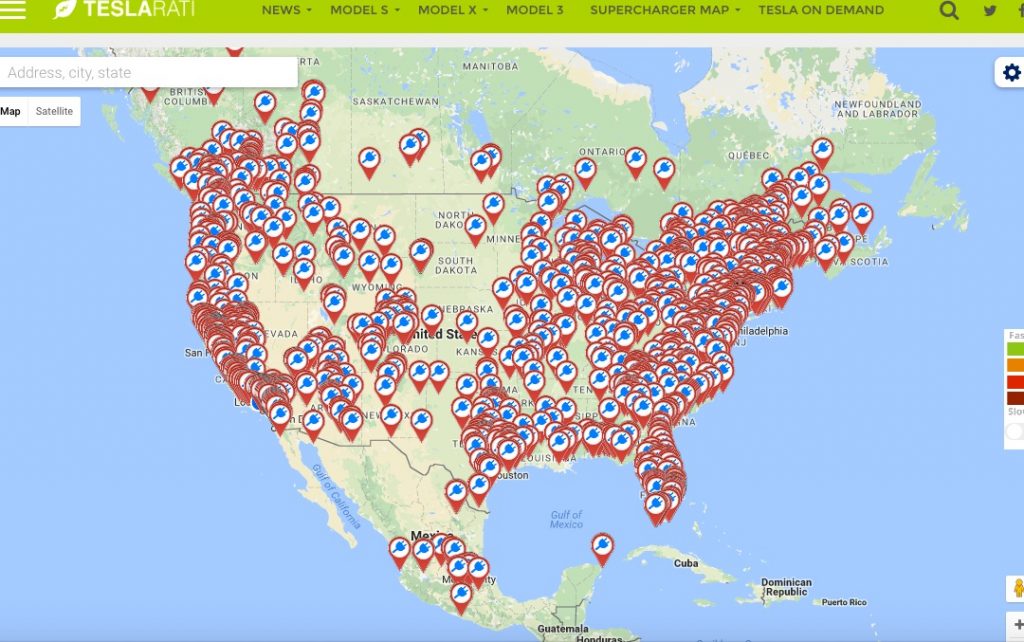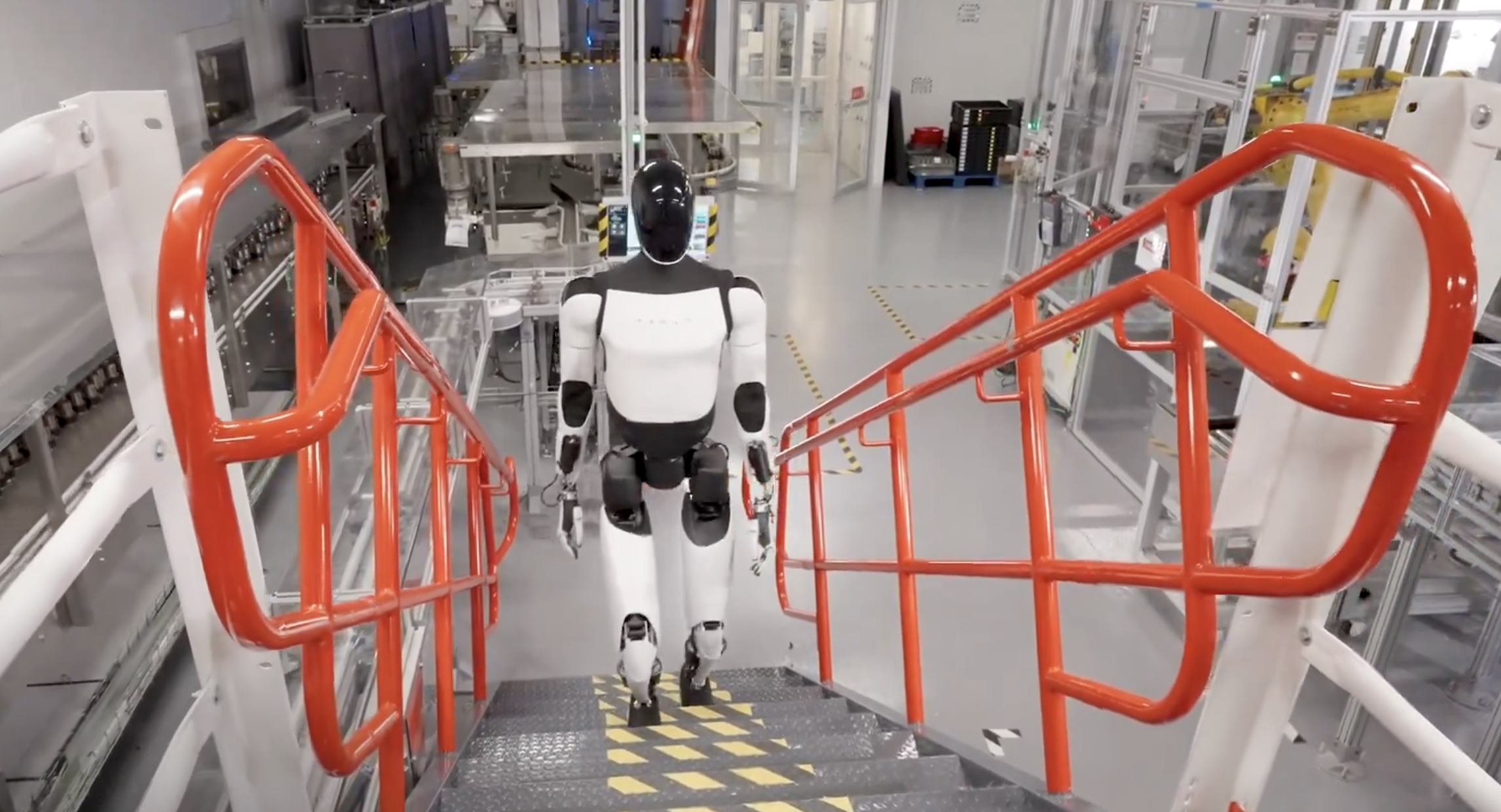Investor's Corner
No universal charging standards, Tesla wins

After writing about industrial networking and device standardization in the manufacturing automation space for ten years, I feel quite confident in saying any universal agreement on charging standards are far, far away.
Why, you say? In the manufacturing world, devices and systems need to communicate control signals via fieldbus and ethernet networks in order to monitor many types of applications. Multiple networks standards have been present for twenty plus years, with big automation suppliers — Siemens and Honeywell— in different networking camps, and there’s no universal agreement on one single network.
Sound familiar? CHAdeMO, Tesla Supercharger network and, of course, SAE Combo – these connecting standard are all driven by separate groups of companies. Some companies, such as GM, have no interest in building out a charging network, while German car companies now know the need for a charging platform to sustain a long game strategy.
With so many late entrants into the electric car market, the clear winner for these so-called charging wars is Tesla — not a believer that there is.
Why? The company’s superior Supercharging rates and deployment strategy, including destination charging, will pay dividends for years. For example, a recent Kickstarter campaign started by Quick Charge Power LLC is trying to develop an adapter that allows any battery electric vehicle from North American or Japan to use Tesla’s HPWC. According to the page, the adapter “will only work with Tesla AC charging equipment: the UMC mobile connector or the HPWC (wall connector) and destination chargers”.

With so many destination charging spots, a JDapter could make Bolts and next-gen Leafs a reality for High-Power Wall Chargers.
The company calls it the JDapter, and the big get could be Tesla’s Destination Charging system. In two years from now, a Bolt may have a reservation for a charge session at a hotel ahead of a Tesla owner.
A recent Facebook discussion raised this issue:
“The sites — destination charging — where Tesla installed the HPWCs are the ones who pay for the power; it seems reasonable that they should decide who should charge there. Tesla is even willing to include a J1772 charger with every pair of HPWCs and pay for that installation too.”
Quick Charge Power states that each establishment can create its own policy and has the right to exclude non-Tesla automobiles. And, of course, the adapters can’t work on the Supercharger network.
As enthusiasts and owners, how do we view this development? I feel it’s a win-win for the Tesla brand and to Musk’s ultimate goal of mass electrification.
Tesla is supremely positioned as the most coveted technology and charging platform out there. This is a Silicon Valley company and Musk knows the importance of being THE electric vehicle platform…think Google. As mainstream consumers become aware of Tesla’s direct relationship with its Superchargers, a Bolt and Model 3 charging line issue at a hotel should be minimal. Most will choose Tesla for their first foray into electric cars, purely on a charging criteria.
Plus, non-Tesla charge stations plans are in the works. Recently, Volkswagen, BMW and ChargePoint announced plans to expand DC, fast-charging networks on the coasts.
Also, the Volkswagen diesel rigging scandal is costing them greatly. A portion of the $15 billion settlement goes to promote zero-emission vehicles. The settlement payout, back in the summer, was to be $2 billion and it could go hydrogen filling stations and electric-car charging stations in states like California.
This is good news for Tesla as more stations appear as a result of the company’s adapters. Earlier this year, Tesla applied for a new patent on a CHadeMO and SAE J1772 adapter earlier this year. In the near future, a Tesla owner could be traveling anywhere, not just on the Supercharger network.
The standardization movement is noble but will be bloody for years. Musk and Tesla knew this when it struck out on its electrification strategy and, for now, all roads lead back to Tesla.
Investor's Corner
Tesla could save $2.5B by replacing 10% of staff with Optimus: Morgan Stanley
Jonas assigned each robot a net present value (NPV) of $200,000.

Tesla’s (NASDAQ:TSLA) near-term outlook may be clouded by political controversies and regulatory headwinds, but Morgan Stanley analyst Adam Jonas sees a glimmer of opportunity for the electric vehicle maker.
In a new note, the Morgan Stanley analyst estimated that Tesla could save $2.5 billion by replacing just 10% of its workforce with its Optimus robots, assigning each robot a net present value (NPV) of $200,000.
Morgan Stanley highlights Optimus’ savings potential
Jonas highlighted the potential savings on Tesla’s workforce of 125,665 employees in his note, suggesting that the utilization of Optimus robots could significantly reduce labor costs. The analyst’s note arrived shortly after Tesla reported Q2 2025 deliveries of 384,122 vehicles, which came close to Morgan Stanley’s estimate and slightly under the consensus of 385,086.
“Tesla has 125,665 employees worldwide (year-end 2024). On our calculations, a 10% substitution to humanoid at approximately ($200k NPV/humanoid) could be worth approximately $2.5bn,” Jonas wrote, as noted by Street Insider.
Jonas also issued some caution on Tesla Energy, whose battery storage deployments were flat year over year at 9.6 GWh. Morgan Stanley had expected Tesla Energy to post battery storage deployments of 14 GWh in the second quarter.
Musk’s political ambitions
The backdrop to Jonas’ note included Elon Musk’s involvement in U.S. politics. The Tesla CEO recently floated the idea of launching a new political party, following a poll on X that showed support for the idea. Though a widely circulated FEC filing was labeled false by Musk, the CEO does seem intent on establishing a third political party in the United States.
Jonas cautioned that Musk’s political efforts could divert attention and resources from Tesla’s core operations, adding near-term pressure on TSLA stock. “We believe investors should be prepared for further devotion of resources (financial, time/attention) in the direction of Mr. Musk’s political priorities which may add further near-term pressure to TSLA shares,” Jonas stated.
Investor's Corner
Two Tesla bulls share differing insights on Elon Musk, the Board, and politics
Two noted Tesla bulls have shared differing views on the recent activities of CEO Elon Musk and the company’s leadership.

Two noted Tesla (NASDAQ:TSLA) bulls have shared differing views on the recent activities of CEO Elon Musk and the company’s leadership.
While Wedbush analyst Dan Ives called on Tesla’s board to take concrete steps to ensure Musk remains focused on the EV maker, longtime Tesla supporter Cathie Wood of Ark Invest reaffirmed her confidence in the CEO and the company’s leadership.
Ives warns of distraction risk amid crucial growth phase
In a recent note, Ives stated that Tesla is at a critical point in its history, as the company is transitioning from an EV maker towards an entity that is more focused on autonomous driving and robotics. He then noted that the Board of Directors should “act now” and establish formal boundaries around Musk’s political activities, which could be a headwind on TSLA stock.
Ives laid out a three-point plan that he believes could ensure that the electric vehicle maker is led with proper leadership until the end of the decade. First off, the analyst noted that a new “incentive-driven pay package for Musk as CEO that increases his ownership of Tesla up to ~25% voting power” is necessary. He also stated that the Board should establish clear guidelines for how much time Musk must devote to Tesla operations in order to receive his compensation, and a dedicated oversight committee must be formed to monitor the CEO’s political activities.
Ives, however, highlighted that Tesla should move forward with Musk at its helm. “We urge the Board to act now and move the Tesla story forward with Musk as CEO,” he wrote, reiterating its Outperform rating on Tesla stock and $500 per share price target.
Tesla CEO Elon Musk has responded to Ives’ suggestions with a brief comment on X. “Shut up, Dan,” Musk wrote.
Cathie Wood reiterates trust in Musk and Tesla board
Meanwhile, Ark Investment Management founder Cathie Wood expressed little concern over Musk’s latest controversies. In an interview with Bloomberg Television, Wood said, “We do trust the board and the board’s instincts here and we stay out of politics.” She also noted that Ark has navigated Musk-related headlines since it first invested in Tesla.
Wood also pointed to Musk’s recent move to oversee Tesla’s sales operations in the U.S. and Europe as evidence of his renewed focus in the electric vehicle maker. “When he puts his mind on something, he usually gets the job done,” she said. “So I think he’s much less distracted now than he was, let’s say, in the White House 24/7,” she said.
TSLA stock is down roughly 25% year-to-date but has gained about 19% over the past 12 months, as noted in a StocksTwits report.
Investor's Corner
Cantor Fitzgerald maintains Tesla (TSLA) ‘Overweight’ rating amid Q2 2025 deliveries
Cantor Fitzgerald is holding firm on its bullish stance for the electric vehicle maker.

Cantor Fitzgerald is holding firm on its bullish stance for Tesla (NASDAQ: TSLA), reiterating its “Overweight” rating and $355 price target amidst the company’s release of its Q2 2025 vehicle delivery and production report.
Tesla delivered 384,122 vehicles in Q2 2025, falling below last year’s Q2 figure of 443,956 units. Despite softer demand in some countries in Europe and ongoing controversies surrounding CEO Elon Musk, the firm maintained its view that Tesla is a long-term growth story in the EV sector.
Tesla’s Q2 results
Among the 384,122 vehicles that Tesla delivered in the second quarter, 373,728 were Model 3 and Model Y. The remaining 10,394 units were attributed to the Model S, Model X, and Cybertruck. Production was largely flat year-over-year at 410,244 units.
In the energy division, Tesla deployed 9.6 GWh of energy storage in Q2, which was above last year’s 9.4 GWh. Overall, Tesla continues to hold a strong position with $95.7 billion in trailing twelve-month revenue and a 17.7% gross margin, as noted in a report from Investing.com.
Tesla’s stock is still volatile
Tesla’s market cap fell to $941 billion on Monday amid volatility that was likely caused in no small part by CEO Elon Musk’s political posts on X over the weekend. Musk has announced that he is forming the America Party to serve as a third option for voters in the United States, a decision that has earned the ire of U.S. President Donald Trump.
Despite Musk’s controversial nature, some analysts remain bullish on TSLA stock. Apart from Cantor Fitzgerald, Canaccord Genuity also reiterated its “Buy” rating on Tesla shares, with the firm highlighting the company’s positive Q2 vehicle deliveries, which exceeded its expectations by 24,000 units. Cannacord also noted that Tesla remains strong in several markets despite its year-over-year decline in deliveries.
-

 Elon Musk1 week ago
Elon Musk1 week agoTesla investors will be shocked by Jim Cramer’s latest assessment
-

 Elon Musk3 days ago
Elon Musk3 days agoElon Musk confirms Grok 4 launch on July 9 with livestream event
-

 Elon Musk11 hours ago
Elon Musk11 hours agoxAI launches Grok 4 with new $300/month SuperGrok Heavy subscription
-

 News7 days ago
News7 days agoTesla Model 3 ranks as the safest new car in Europe for 2025, per Euro NCAP tests
-

 Elon Musk2 weeks ago
Elon Musk2 weeks agoA Tesla just delivered itself to a customer autonomously, Elon Musk confirms
-

 Elon Musk1 week ago
Elon Musk1 week agoxAI’s Memphis data center receives air permit despite community criticism
-

 Elon Musk2 weeks ago
Elon Musk2 weeks agoTesla’s Omead Afshar, known as Elon Musk’s right-hand man, leaves company: reports
-

 News2 weeks ago
News2 weeks agoXiaomi CEO congratulates Tesla on first FSD delivery: “We have to continue learning!”

















